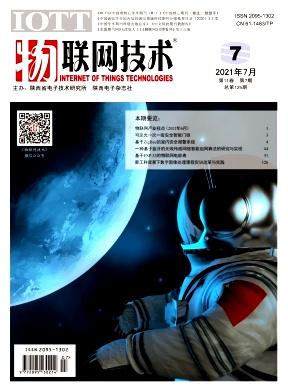A Secure Design of Healthcare System with Blockchain and Internet of Things (IoT)
引用次数: 0
Abstract
Health is one of the most important aspects of human life. For a healthy society, the healthcare sector must be reliable and efficient as much as possible. Blockchain networks can be used to provide innovative solutions to store and share patient data among hospitals, pharmaceutical companies, diagnostic labs, and physicians. Blockchain applications are capable of building trust and detecting fatal errors in the sharing of data. So blockchain can help in the security, effectiveness, and transparency of sharing medical data in the healthcare industry. Using this technology, medical institutions can get quality and trustworthy knowledge which they can use to improve the analysis of patient data and help in the good diagnosis of health issues. A thorough study and analysis have been done to explore the opportunities that blockchain technology can provide to improve the healthcare industry. The various characteristics, methods, and smooth workflow processes of blockchain technology are discussed in diagrams as a potential means of improving global healthcare. The article concludes by listing and analyzing various significant blockchain applications for the healthcare industry. It can help in implementing the smart contract, nonce concepts, and P2P distributed ledgers which ensure the immutability of the shared data. The methods discussed in this paper improve the security of Electronic Health Records (EHRs). The data of patients are taken directly via IoT devices which are used as medical instruments for patients which increases the reliability of data as there is no human interference in between hence human error is eliminated. The proposed technique implementation results show that the security of data has increased and it is more efficient.基于区块链和物联网的医疗系统安全设计
健康是人类生活中最重要的方面之一。为了一个健康的社会,医疗保健部门必须尽可能可靠和高效。区块链网络可用于提供创新的解决方案,以便在医院、制药公司、诊断实验室和医生之间存储和共享患者数据。区块链应用程序能够建立信任并检测数据共享中的致命错误。因此,区块链可以帮助提高医疗保健行业共享医疗数据的安全性、有效性和透明度。使用这项技术,医疗机构可以获得高质量和值得信赖的知识,他们可以使用这些知识来改进对患者数据的分析,并帮助更好地诊断健康问题。我们进行了全面的研究和分析,以探索区块链技术可以提供的改善医疗保健行业的机会。在图表中讨论了区块链技术的各种特征、方法和流畅的工作流程,作为改善全球医疗保健的潜在手段。本文最后列出并分析了医疗保健行业中各种重要的区块链应用程序。它可以帮助实现智能合约,nonce概念和P2P分布式账本,确保共享数据的不变性。本文所讨论的方法提高了电子病历的安全性。患者的数据直接通过物联网设备获取,物联网设备用作患者的医疗器械,这增加了数据的可靠性,因为两者之间没有人为干扰,因此消除了人为错误。实施结果表明,该技术提高了数据的安全性和效率。
本文章由计算机程序翻译,如有差异,请以英文原文为准。
求助全文
约1分钟内获得全文
求助全文

 求助内容:
求助内容: 应助结果提醒方式:
应助结果提醒方式:


